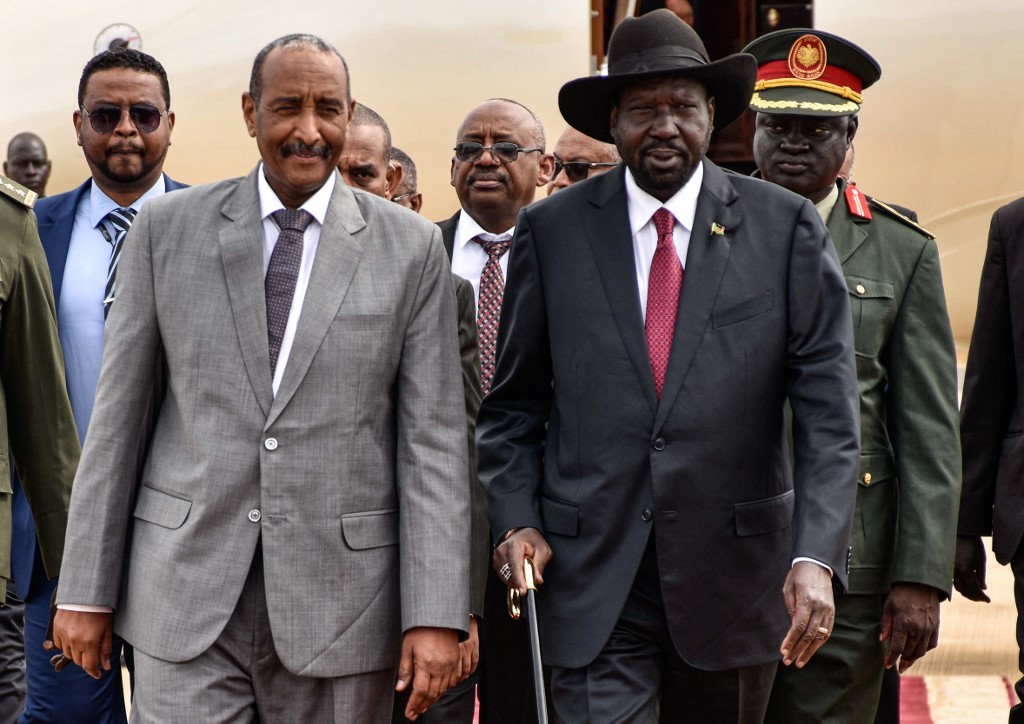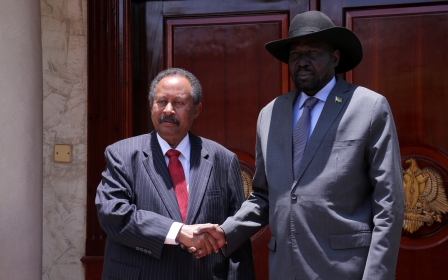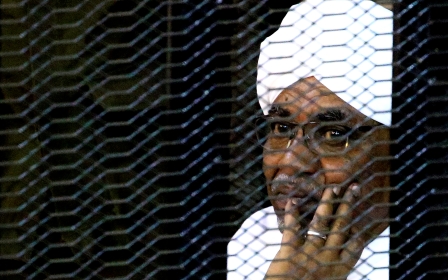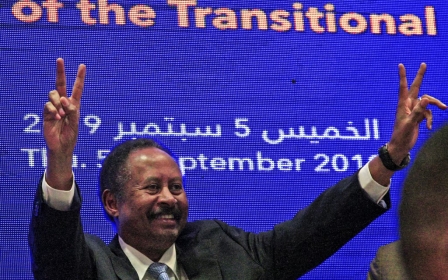Sudan peace talks stall after rebels complain of government attacks
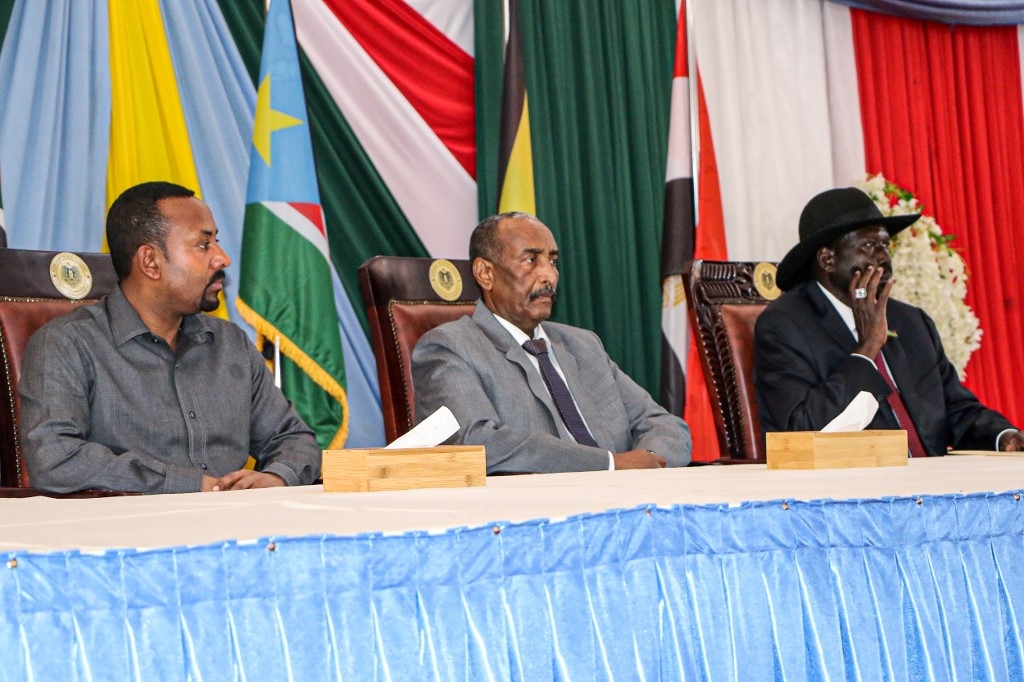
One of the main Sudanese rebel groups involved in peace negotiations with the country's transitional government has withdrawn from the latest round of talks in neighbouring South Sudan complaining of continuing attacks by government forces.
In a statement on Wednesday, the Sudan People’s Liberation Movement–Northern sector (SPLM-N) said that government forces had attacked an area under its control in South Kordofan, southwestern Sudan, and announced it was withdrawing from talks which began in Juba on Monday.
Responding to the SPLM-N's call for a ceasefire, the Sudanese government immediately declared a halt to fighting around the country, Sudanese officials in Juba told a press conference.
'What happened is totally unacceptable and we will hold those committed these incidents accountable and bring them to the prosecution very soon'
- Mohamed Hasan Altaaishi, a member of Sudan's ruling sovereign council
“We regret this incident and we condemn it in the strongest terms. We confirmed that it’s against our orientation towards peace,” said Mohamed Hasan Altaaishi, a member of Sudan's ruling sovereign council.
“What happened is totally unacceptable and we will hold those committed these incidents accountable and bring them to the prosecution very soon."
New MEE newsletter: Jerusalem Dispatch
Sign up to get the latest insights and analysis on Israel-Palestine, alongside Turkey Unpacked and other MEE newsletters
The SPLM-N, headed by General Abdul Aziz Alhilu, is considered to be the strongest rebel movement fighting the government in southwestern Sudan.
It said government forces, including Rapid Support Forces (RSF) militia fighters, had attacked civilians and ambushed rebels in the Nuba Mountains. It also accused the government of supporting the Arab Hawazma tribe against other tribes in the area.
"So far two people have been killed. One of them is an SPLM soldier and another 16 people were also abducted by the government forces," Ammar Amoun, the secretary general of the SPLM-N Alhilu faction, told a press conference.
Amoun said the group would not return to the negotiating table without a ceasefire across the entire country, the withdrawal of government forces from the attacked area, and the release of all prisoners arrested during the operation.
“We want the government to prove it's politically willing to make the peace in the country and stop these provocations and met the conditions that we raised here,” he said.
Who are Sudan's rebel groups?
+ Show - HideSRF: Sudanese Revolutionary Front
Rebel groups fighting in Darfur, Blue Nile State and South Kordofan formed the SRF in 2011 to unite efforts in talks with the government and have advocated for greater representation for minorities and marginalised communities during Sudan's post-Bashir transition
SPLM: Sudan People's Liberation Movement
Founded by the iconic rebel leader John Garang, who aimed for a democratic Sudan, the SPLM fought a war against the Sudanese state that eventually led to the secession of South Sudan in 2011. It is now South Sudan's ruling party, led by President Salva Kiir.
SPLM/N: Sudan People's Liberation Movement - North (Agar faction)
Garang's allies formed a northern branch of the SPLM after South Sudan's independence to focus on establishing the SPLM's vision of equality in Sudan. In 2011, SPLM-N chairman Malik Agar was removed by Bashir from his elected position as governor Blue Nile state and launched a rebellion that saw him take control of part of the region.
SPLM/N (Alhilu faction)
The group's vice-chair Abdel Aziz Alhilu splintered to create a faction focused on the grievances of South Kordofan, which borders South Sudan, and has become the most influential Sudanese rebel faction, fighting from the Nuba mountains and controlling large amounts of territory.
SLA/AW: Sudan Liberation Army - Abdul Wahid faction
In 2001 leaders from different indigenous Darfuri communities formed the Sudan Liberation Army to fight Bashir's government, claiming they represented Sudan's marginalised communities. The government was accused of carrying out genocide in its response, which used militias known as the Janjaweed to attack Darfuri communities.
Ethnic Fur, Khartoum-educated lawyer Abdul Wahid was the original chairman and now leads his own faction after the group splintered. Since 2016, Sudanese forces have been trying to clear SLA-AW fighters from the Jebel Marra area of Darfur.
SLA/MM: Sudan Liberation Army - Minni Minnawi faction
SLA commander Minni Minnawi, from the Zaghawa herder community, split from Abdul Wahid and formed his own faction. They have had very little presence in Darfur in recent years, basing themselves in neighbouring Libya.
JEM: Justice and Equality Movement
Founded based on grievances about inequality of power in Sudan and with more religious affiliation than other rebel groups, including leaders who were former members of the Islamist movement, JEM eventually became the most powerful Darfuri group. In 2008 it attempted to overthrow the government by storming Khartoum, only halted when they clashed with Sudanese forces in the capital's sister city Omdurman.
The withdrawal of the SPLM-N would be a blow for a peace process which appeared to have been gathering momentum since the transitional government was installed in Sudan following months of protests that ended the decades-long rule of Omar al-Bashir.
The Alhilu-led SPLM-N was negotiating separately with the government from the Sudanese Revolutionary Front, a coalition representing most of the country's other rebel groups.
The head of the South Sudanese mediating team told journalists 0n Wednesday that he had received notification from the head of the Sudanese sovereign council regarding his commitment to a ceasefire. Tut Gatluak also said that talks would be postponed for one day to address the SPLM-N's concerns.
“We, as mediators, will continue working hard to help the Sudanese rivals make a breakthrough in this round of talks and we are urging all parties to continue the negotiations” Gatluak said.
Following preliminary talks between the government and rebel factions in Juba last month, this week's negotiations have been attended by Ethiopian Prime Minister Abiy Ahmed, Ugandan President Yoweri Museveni, and senior representatives from the African Union, the European Union, Saudi Arabia, the United Arab Emirates and Egypt.
Cairo, Abu Dhabi and Doha vying for future talks
Though the talks officially opened on Monday, MEE understands that no direct negotiations have so far taken place because of a dispute over where future rounds should be held.
Sources close to the talks told MEE that Egypt, the United Arab Emirates and Qatar, which has sponsored Darfur peace talks since 2011, have all offered themselves as hosts because of concerns that South Sudan lacks the financial capacity to support the peace process.
But an official within the South Sudanese mediation team told MEE that the talks should continue to be held in Juba.
“South Sudan is capable of mediating the peace talks because of many reasons. We have historic ties with the different parties in Sudan and we are the country that understands the new situation after the uprising in Sudan, so it’s not about financial capabilities,” he said, speaking on condition of anonymity.
The official said that organising the talks was not just a question of funding but also of making security arrangements and providing technical and political support for the process.
“It can’t be directed by one country alone, so the United Nations and other organisations can help in this regard,” he said.
'Anywhere for peace'
Sudanese government officials told MEE that they strongly supported the mediation of South Sudan, but were prepared to go anywhere in order to achieve peace.
“We are aiming to achieve the peace and it’s our responsibility and task as a transitional government to make it, so we are ready to go and travel for the talks wherever it will be, either in Juba or anywhere else,” Suleman Dibelow, chair of the Sudan peace commission, told MEE.
Gamal Omer, Sudan’s defence minister, told MEE that Juba was best placed to host the talks because South Sudan’s government had strong ties with rebel leaders and because Khartoum is also sponsoring South Sudan’s own peace process.
“We believe that Juba is the capital that is capable to lead this mediation and to help us in making a breakthrough towards peace in our country,” he said.
“We have old ties with Juba and we are confident they can make the difference, rather than anyone else in the region.”
Omer also said that process would depend on international support from the UN, the "Troika" of the US, the UK and Norway which sponsored peace talks which led to South Sudan seceding from Sudan in 2011, and other regional countries.
“We believe that financial and political support can be brought from the international community including technical support in terms of security arrangements such as the ceasefire and the withdrawal of armies, but that has nothing to do with the hosting of the talks.”
Five tracks
Altoum Hago, the head of the legislative assembly of the Sudanese Revolutionary Front (SRF), told MEE that an agreement had been reached to divide the peace talks along five tracks.
The first would deal with issues and groups in the southern South Kordofan and Blue Nile states. Others would deal with Darfur, and issues relating to ex-combatants in eastern Sudan. The final two will focus on northern Sudan and central Sudan, which has been affected by people displaced by violence in other areas of the country.
“We agreed that there would be five tracks: one for the two areas, second for Darfur, third for eastern Sudan, fourth for northern Sudan and fifth for the centre of Sudan, because we believe that all these areas have different and unique demands and issues,” Hago said.
“Accordingly we are ready for the beginning of the talks in Juba, but we are flexible to move according to the dynamics and the changes that may happen on each track.”
Rebels represented under the banner of the SRF include another faction calling itself the SPLM-N led by Malik Agar, Darfur's Justice and Equality Movement (JEM) and the Sudan Liberation Movement-Mini Minawi faction (SLM-MM), along with other groups from eastern Sudan, northern Sudan and central Sudan.
Middle East Eye delivers independent and unrivalled coverage and analysis of the Middle East, North Africa and beyond. To learn more about republishing this content and the associated fees, please fill out this form. More about MEE can be found here.


